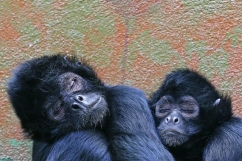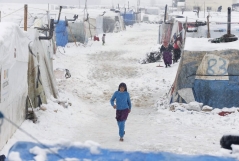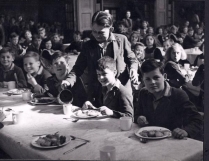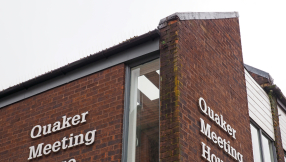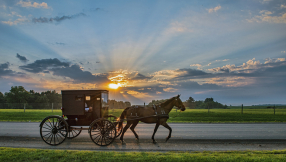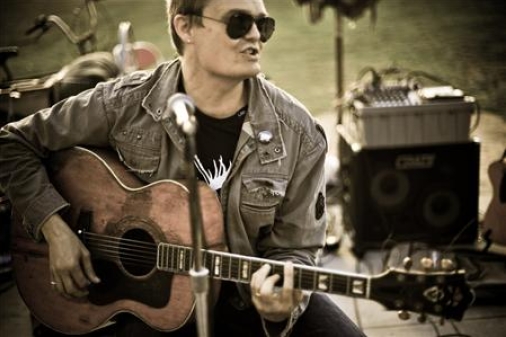
A very large man with a very small guitar has the audience gripped. He sings with such raw passion that it sounds like there's a choir and a team of musicians with him. But Scott Darlow is a lone figure on the stage. A gifted singer-song-writer and spell-binding performer, Darlow is driven by a dual love for God and Australia. When we meet however, he makes a startling admission: "Racism in this country is the default."
I've been in Australia for a week speaking at the National Youth Ministry Convention. The conference gathers professionals and volunteers from across the whole of Australia and New Zealand. I have only experienced gracious hospitality. So I ask Darlow to tell me more about what he means.
"Indigenous people die 14 years younger than any other demographic group due to suicide and preventable illnesses," he says. "I spend time in maximum security prisons that have 10 year-old children in them. 70 per cent of the kids in jail are indigenous people even through we make up only 2.5 per cent of the population. A lot of the kids reoffend to get back into prison because prison life is better than their life outside. 70 per cent of the broader society finish year 12 so that they go on and do university. Only 4.5 per cent of indigenous people finish year 12."
The statistics he recites in rapid succession are shocking. He tells me about the racist abuse that indigenous Australian Rules football star Adam Goode received initially when he was given the title 'Australian of the Year' and the even greater uproar on the football field where there was a sustained and targeted attack on him.
Darlow is not just a critic – he also has a solution to the racism: "You must know the history of things because history helps you to navigate the future." He travels to hundreds of Australian schools a year, armed with a guitar and a history lesson.
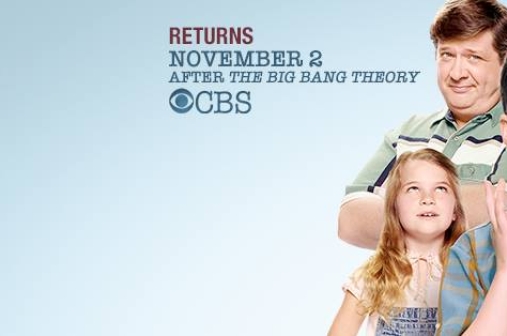
"We were discovered by Captain Cook in 1770. They settled in the country in 1778. They believed at that time according to the theory of evolution that a black person is an animal. So when Captain Cook got off the boat, he declared this country to be Terra Nullius (Uninhabited Country). They looked around and said there's only plants and animals here. In fact that was written into our constitution in 1901 - they classified indigenous people as being flora and fauna. That is plants and animals. That didn't change until 1967."
I am repulsed by this. Not at Australia, because of course Great Britain also has a shameful colonialist history in places such as Kenya and India, but at the systemisation of dehumanisation. He goes on:
"In World War 2 Aboriginal soldiers fought [for] and served this country. When they came home they saw every other soldier not only getting medals, but houses as war heroes. But the Aboriginal soldiers didn't get anything, in fact many of them weren't even welcome in the serviceman's clubs to have a drink with those they fought alongside."
Sadly the Church was not immune from these racist attitudes. The movie Rabbit Proof Fence tells the story of the mixed race children produced by white fathers and Aboriginal women. "These children were seen as not totally black, not totally savages," he explains, "and that is how what is known as the stolen generation came about. These children were removed from their birth mothers and put into residential schools. This was going on until the 1980s; less than one generation ago." Sadly, as portrayed in the movie, the Church was involved in the forcible removal of Aboriginal children from their families and the running of the residential schools. Well-meaning people did some very damaging things to vulnerable children.
Darlow refuses to let the Church's tragic history on this matter determine its future. It's his faith in Christ that motivates him that things can be different. His conversion to Christianity that took place during his career as a semi-professional Australian Rules footballer. "What we have to start doing is educating people about history. Because history gives context and context leads to empathy. Empathy leads to our stories being shared and then we can become one people again."
On his wrist he has a band with the word "FLUTE". I ask him what it means.
Forgiveness Love Understanding Tolerance Empathy
He explains "If every person in Australia were able show just 10 per cent more of these things to everybody they come across then I would be out of a job." Scott Darlow is a big man with a huge vision, my prayer is that more people will hear his message, the Church will champion his cause and that Australia's shameful secret will be relegated to history, superseded by welcoming grace.
Dr Krish Kandiah is founder and director of Home for Good.






